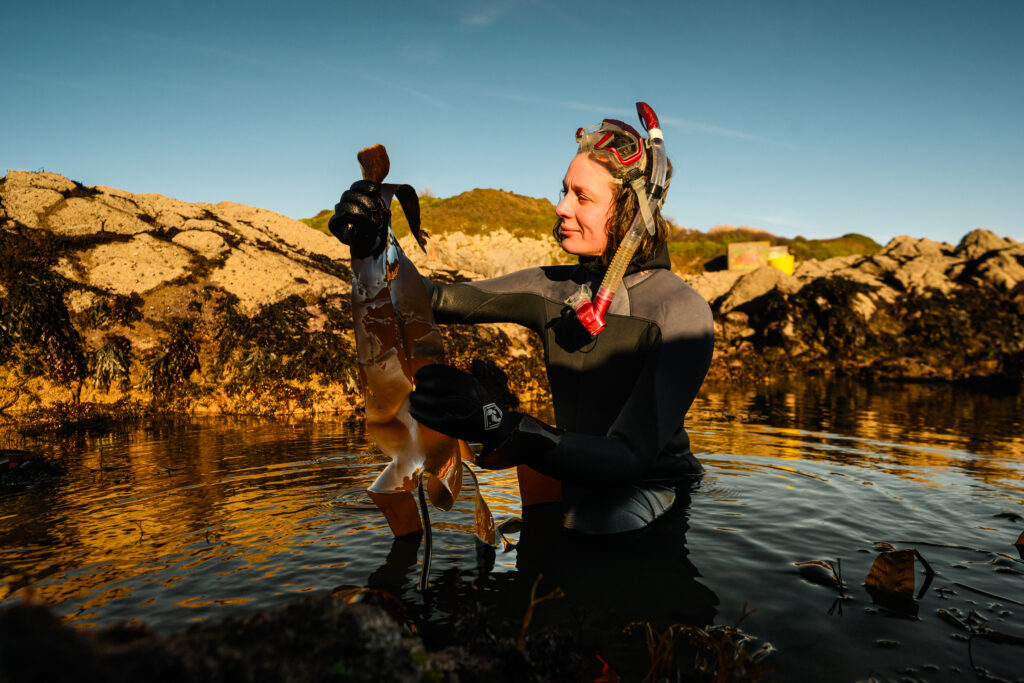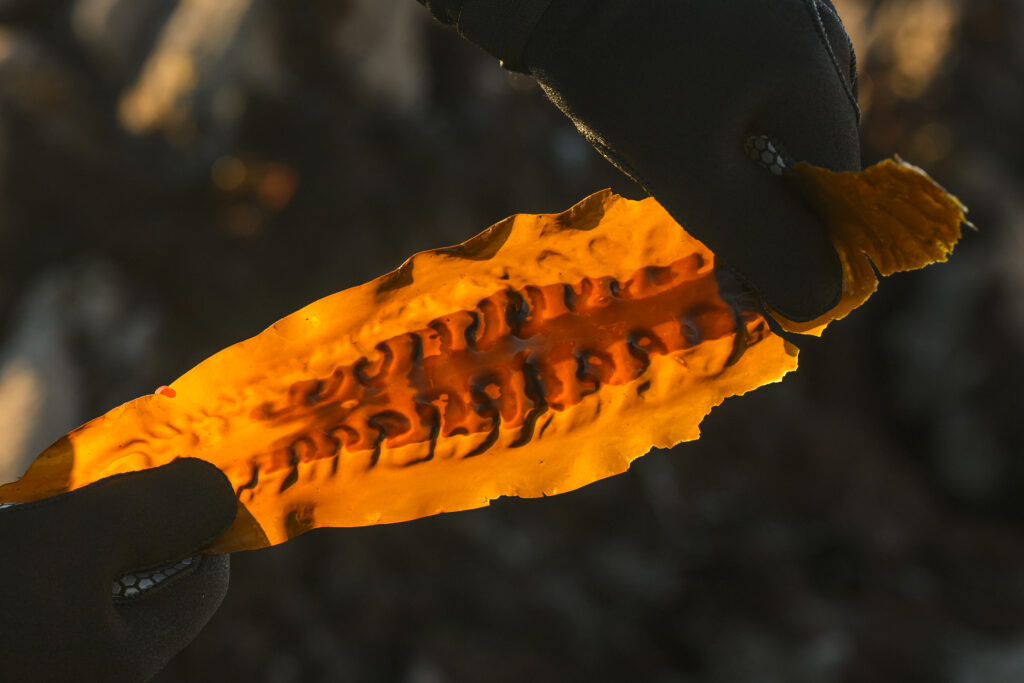Kelp forests play a crucial role in marine ecosystems by providing habitat and food for a diverse range of marine species.

However, various factors such as climate change, pollution, and overfishing have led to a decline in kelp populations across the world, posing a significant threat to the health of coastal ecosystems.
Scientists at the Marine Biological Association (MBA) and Newcastle University have embarked on a groundbreaking project to protect native kelp populations in the UK.
‘Green gravel’, a pioneering restoration tool to combat kelp forest decline is being used in the UK on four species of native kelp.
Kelp spores are extracted from coastal locations in Devon and Teeside and then ‘seeded’ onto local gravel (substrates) in a lab, allowing the kelp to grow under optimal conditions.
Once kelp plants have grown large enough (1cm long), the gravel and kelp will be planted out at sea.
This technique is cheap, simple, and does not require scuba diving or highly trained field workers. It can be up-scaled to treat large areas or even used to introduce genes from more resilient kelp populations onto vulnerable reefs.
The research team will also conduct trials to see if scallop shells can be used as a restoration substrate, which in turn could reduce the amount of scallop shells that are thrown away in landfill waste.
Green gravel projects have been used to combat kelp loss in Portugal and Australia, but this is the first time it has been trialled in subtidal habitats the UK.

While much research has focused on coral, mangrove and seagrass restoration, far less attention has been given to kelp forests, despite their huge ecological and socioeconomic importance. The UK and Ireland represent an important area for kelps, with 7 different species found along 19,000 km of the UK’s coastline. Losses or shifts in the structure of kelp forests in the UK could have significant consequences for marine ecosystems and the services they provide to coastal communities.
MBA Senior Research Fellow Dr Dan Smale and Senior Research Assistant Cat Wilding who study the structure and functioning of vital coastal habitats such as kelp forests and seagrass meadows are leading the project.
Cat said: “Restoration is more cost effective and more likely to succeed before when implemented following partial declines, rather than after extensive or complete loss. Therefore development of restoration capacity for UK kelp is timely, to allow for fast intervention and boost resilience, “future-proofing” British kelp forests.”
Researchers have been working closely with the fishing communities through the North East Fishing Collective / Whitby Fishing Association and Plymouth Fishing and Seafood Association. The team hope that in the future, fishing fleets will support the kelp out-planting on an ongoing, paid basis.
The project has been generously funded by the Marine Management Organisation, Fishmongers’ Company’s Fisheries Charitable Trust, Newcastle University, Seafarers Charity, Marshall Wace, Devon Environment Foundation, and the Dixon Foundation.